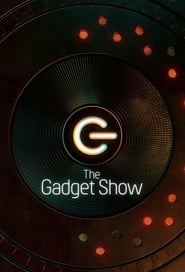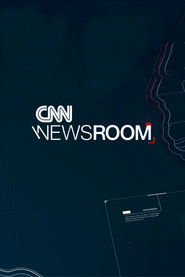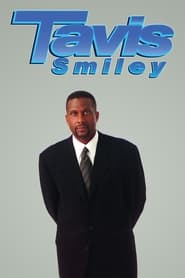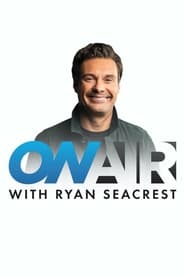New News TV Series - Page 49
-
The Gadget Show
2004
The Gadget Show
2004
star 6.7The Gadget Show is a British television series which focuses on consumer technology. The show, which is broadcast on Channel 5 is currently presented by Jason Bradbury and Rachel Riley with Jon Bentley and Pollyanna Woodward. Originally a thirty-minute show, it was extended to forty-five minutes, then later to sixty minutes. Repeats have also aired on the digital channel 5*, syndicated broadcasts on Discovery Science and Dave, and Channel 5's Internet on-demand service Demand 5. In Australia, it is aired on The Lifestyle Channel. -
Matins
2004
-
CMT Insider
2004
-
報道ステーション
2004
報道ステーション
2004
-
CNN Newsroom
2004
CNN Newsroom
2004
CNN Newsroom is a rolling news programme airing on CNN International, from Hong Kong and Atlanta. The newscast is anchored by Pauline Chiou: 6-7am Hong Kong time edition, Anna Coren: 7-8am Hong Kong time edition, Rosemary Church: 1-2am Atlanta time edition and John Vause: 2-3am Atlanta time edition. The Weekend edition newscast is aired from Atlanta and anchored by Ralitsa Vassileva, Natalie Allen and Colleen McEdwards. -
ITV News Network
2004
ITV News Network
2004
Following the 2 February 2004 relaunch, ITV News Network with Steve Scott was broadcast from the London Tonight studio at 21:30. -
Love Bytes
2004
Love Bytes
2004
-
High School Stories
2004
High School Stories
2004
star 10High School Stories is an original program that aired on the MTV network that featured stories of pranks, scandals, and controversies kids took part in when they were in high school. MTV searched for interesting stories across the United States via the internet and news reports. It airs on MTV2 and occasionally on MTV. A new season started on October 4, 2010, on MTV2 that airs on Monday through Thursday mornings. -
Rick Mercer Report
2004
Rick Mercer Report
2004
star 7.2A weekly helping of topical satire, funny takes on the week's top stories and Canada-wide adventures. -
Tavis Smiley
2004
Tavis Smiley
2004
star 7.3Tavis Smiley features a unique mix of news and pop culture to combine for one thought-provoking and entertaining program. A hybrid of news, issues and entertainment, it features interviews with artists, activists, newsmakers, politicians and everyday people. Since its first season, the show has won four NAACP Image Awards for "Outstanding Television, News, Talk, or Information (Series or Special)." Taped at KCET studios, Tavis Smiley is the first West Coast talk show for PBS and is produced by The Smiley Group Inc./TS Media Inc. in association with KCET/Hollywood. -
凤凰大视野
2004
-
1818黄金眼
2004
1818黄金眼
2004
-
On Air with Ryan Seacrest
2004
star 9.5On Air with Ryan Seacrest is an American syndicated television talk show, which ran from January 12, 2004 through September 17, 2004. It was distributed in the United States and Canada by Twentieth Television. -
Bullseye
2003
Bullseye
2003
Bullseye was a news and analysis program that aired on CNBC at 6 pm ET weekdays from December 8, 2003 to March 11, 2005. Hosted by Dylan Ratigan, it covered breaking news stories from business to pop culture and offered guidance on personal finance with the help of CNBC reporter Steve Liesman and his economy charts drawn on "Easels". The program had music selected by a CNBC intern called Grecco. One segment on the show was called Whine & Cheese, where Ratigan served wine and cheese to his guests and talked about the news in business and corporate governance. On the last episode of the show, on the segment called Bullseye Perspective, Ratigan served as moderator of an economics debate between Lawrence Kudlow and Paul Krugman of the New York Times. The show was replaced by Jim Cramer's Mad Money on March 14, 2005. -
ZIBB
2003
ZIBB
2003
-
Eretz Nehederet
2003
Eretz Nehederet
2003
star 7.1An Israeli satire show featuring satirical references to current affairs of the past week through parodies of the people involved, as well as the thoughts of recurring characters. One of the most watched and influential shows on Israeli TV. -
Cold Pizza
2003
Cold Pizza
2003
star 2Cold Pizza was a television sports morning talk show that aired weekdays on ESPN2. The show's style was more akin to Good Morning America than SportsCenter's straight news and highlights format. It included daily sports news, interviews with sports journalists, athletes, and personalities, and an assortment of other sports and non-sports topics. This show began airing on October 20, 2003. The show's launch team and daily production management was led by broadcast executives James Cohen, Joseph Maar and Todd Mason. Although Cold Pizza was simulcast on ESPN2HD, it was not produced or presented in high definition. On October 2, 2006, DirecTV became the presenting sponsor with the show titled as Cold Pizza presented by DirecTV. Two back-to-back two-hour episodes aired each weekday from Monday through Friday, with the live episode airing from 10 a.m. ET until noon, followed by a repeat at 12 p.m. ET. The show was hosted by former SportsCenter personality, Dana Jacobson, who joined the program in 2005, and Jay Crawford, -
Daheim & unterwegs
2003
Daheim & unterwegs
2003
-
Godafton Sverige
2003
 Netflix
Netflix
 Amazon Prime Video
Amazon Prime Video
 Apple iTunes
Apple iTunes
 Apple TV Plus
Apple TV Plus
 Disney Plus
Disney Plus
 Google Play Movies
Google Play Movies
 Paramount Plus
Paramount Plus
 Hulu
Hulu
 HBO Max
HBO Max
 YouTube
YouTube
 fuboTV
fuboTV
 Peacock
Peacock
 Peacock Premium
Peacock Premium
 Amazon Video
Amazon Video
 The Roku Channel
The Roku Channel
 AMC+
AMC+
 Kocowa
Kocowa
 Hoopla
Hoopla
 The CW
The CW
 Vudu
Vudu
 Starz
Starz
 Showtime
Showtime
 PBS
PBS
 Pantaflix
Pantaflix
 FXNow
FXNow
 Tubi TV
Tubi TV
 Kanopy
Kanopy
 Comedy Central
Comedy Central
 Crunchyroll
Crunchyroll
 Microsoft Store
Microsoft Store
 Redbox
Redbox
 Sun Nxt
Sun Nxt
 ABC
ABC
 DIRECTV
DIRECTV
 Crackle
Crackle
 Fandor
Fandor
 Plex
Plex










